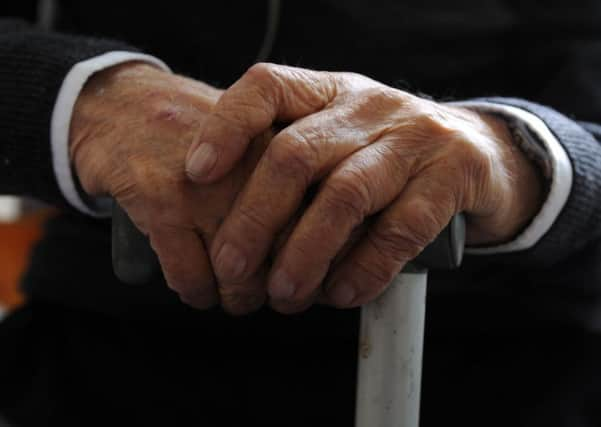Women fill gap as care system at breaking point, report claims


A report has claimed the care system is at “breaking point” and failing to cater for some of society’s most vulnerable individuals, while problems are being compounded by low pay and poor conditions for care workers and an increasing reliance on unpaid carers.
The study has also revealed that women are often being expected to step in to fill the gap when the public sector fails to provide care services, are over-represented among low paid care workers and more likely to be receiving care themselves.
Advertisement
Hide AdAdvertisement
Hide AdThe Political Studies Association Commission on Care, which involves academics from Yorkshire, has published the study amid warnings that the Government’s sustained programme of austerity measures is having a dire impact on care provision.
The commission’s chairwoman, Belinda Phipps, said: “It is clear, the social care system is unsustainable and in crisis. This crisis has been caused by sustained under-funding and made worse by six years of austerity policies and a dysfunctional care system. A lack of political will to solve it has perpetuated it.
“The care system is failing recipients of care and their families, care workers and ultimately society. The care crisis may be perceived as ‘too big’ to tackle, but this is a false economy. Failing to take action has high costs, not just in the care sector but also to the NHS.
“The short-term savings that come from cutting eligibility to care often serve merely to increase the number of people with acute care needs that ultimately are far more costly to address.”
Advertisement
Hide AdAdvertisement
Hide AdThe report, which is based on a year-long inquiry on care for older people in England, has warned that complex rules and regulations are denying services to many and only those who are “competent in negotiating bureaucracy, numerate and determined” are able to ensure they can have their needs met.
It has recommended that a national care service should be established to provide care free at the point of delivery with equal standing to the NHS.
Other recommendations include a national policy on recruitment and training of care workers, with a new qualification that bridges the gap between care workers and nurses to deal with increasing patients’ complex needs.
The commission’s report has also called for a national source of information for individuals and family members about care, including financial entitlements and the availability of different services.
Advertisement
Hide AdAdvertisement
Hide AdThe Government maintained it is committed to addressing the growing demands on the care system. The Department of Health revealed earlier this year that £10bn is being invested over the next five years.
However, the ageing population is expected to have a profound impact in the region, with North Yorkshire alone set to see the number of people aged over 85, who have the greatest need of care services, forecast to rise from 17,400 in 2011 to 37,500 by 2030, an increase of 116 per cent.
The commission was established in September last year to investigate the crisis in the care sector and involves academics and policy experts from the universities of Warwick and Sheffield as well as the women’s rights charity, the Fawcett Society, and the Women’s Budget Group.
Comment: Page 10.